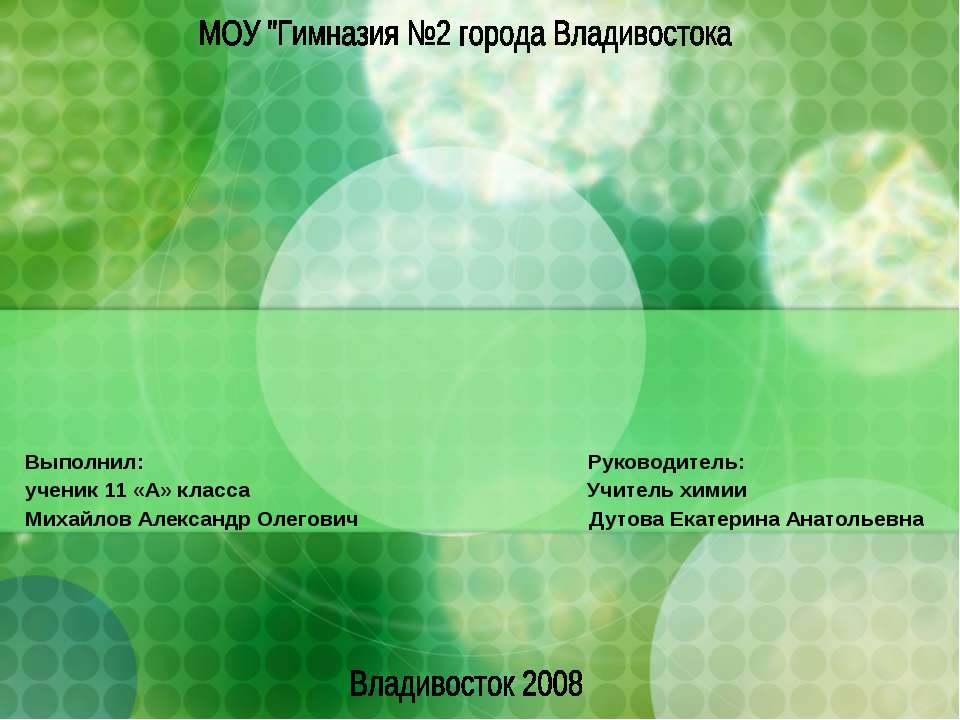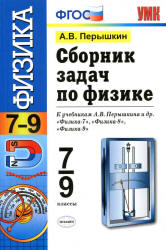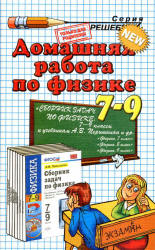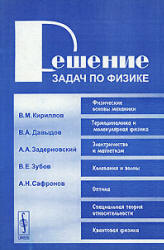Физика столкновений тяжелых ионов
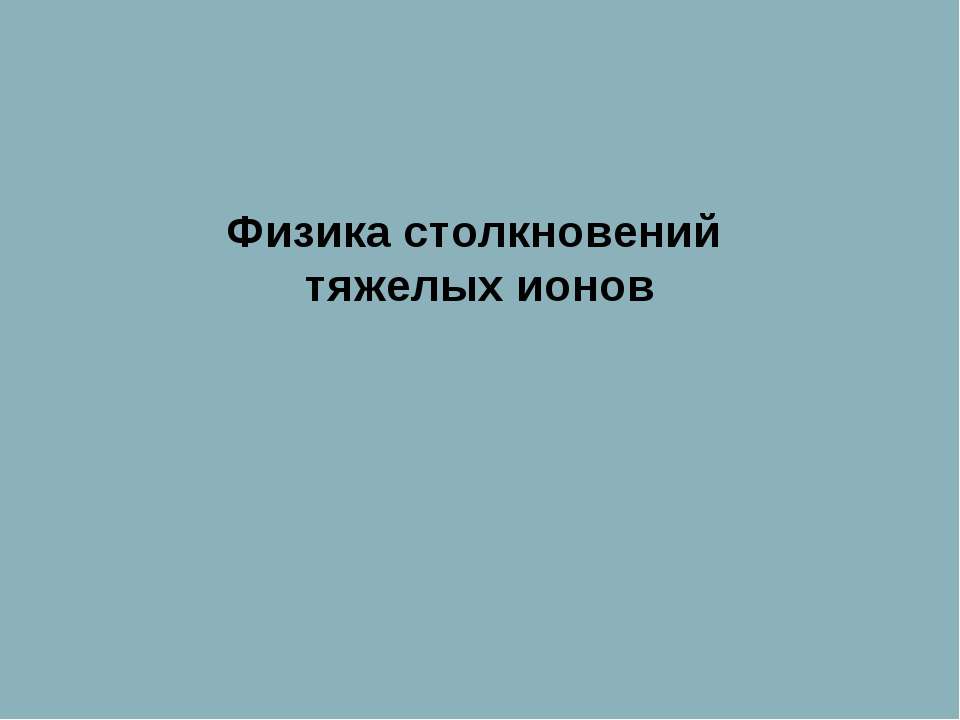
- Рубрика: Презентации / Презентации по Физике
- Просмотров: 368
Презентация "Физика столкновений тяжелых ионов" онлайн бесплатно на сайте электронных школьных учебников edulib.ru
* Содержание Введение Фазовые переходы в сжатой и нагретой ядерной материи Пространственно-временная картина АА взаимодействий Уроки RHIC Столкновения тяжелых ионов на LHC Ультрапериферические столкновения на LHC Заключение
* плотность энергии как функция температуры фазовая диаграмма состояния адронной материи Фазовые переходы в сжатой и нагретой ядерной материи
Сигналы нового состояния вещества Жесткие сигналы мягкие (адроны) (коллективные течения, корреляции, выходы странных частиц) жесткие сигналы («реликтовое излучение») (e+e-, γ, γγ, струи, J/ψ подавление) 1. Дилептоны SPS RHIC Вывод: новый механизм генерации дилептонов на ранней стадии (кварк-антикварковая аннигиляция, восстановление киральной симметрии)
* прямые фотоны КГП на RHIC D. d’Enterria, D. Perresounko nucl-th/0503054 thermal prompt DATA = prompt + thermal
4. Струи qq → qq струя адронов Струя в адронной среде q q g q q g g … AA pp — “jet quenching” — выход подавлен — дебаевский радиус экранирования
Струи в Au+Au и d+Au и p+p нет подавления в p+p и d+Au “in” и “out” струи подавляются по разному!
Адронные пробники нового состояния вещества Коллективное течение — азимутальный угол — коэффициент Фурье b0.5) p
* ATLAS physics program Global variable measurement dN/dη dET/dη elliptic flow azimuthal distributions Jet measurement and jet quenching Quarkonia suppression J/Ψ p-A physics Ultra-Peripheral Collisions (UPC) Idea: take full advantage of the large calorimeter and μ-spectrometer Direct information from QGP
* A few key numbers and maybe a plot. ~ 8,000 collisions per second luminosity ~ 10^27 cm-2s-1 1 month is 10^6 seconds implies possible samping of 10^10 min bias and 10^9 central Pb-Pb events. 5 bbar per central event. Direct photons --> With central barrel in one month running for central events: 1e3 counts at 60 GeV in 1 GeV pt bin! Jets --> B Jets--> ATLAS Physics Rates
* Color screening prevents various ψ, , χ states to be formed when T→Ttrans to QGP (color screening length < size of resonance) Quarkonia suppression Modification of the potential can be studied by a systematic measurement of heavy quarkonia states characterized by different binding energies and dissociation temperatures ~thermometer for the plasma Upsilon family (1s) (2s) (3s) Binding energies (GeV) 1.1 0.54 0.2 Dissociation at the temperature ~2.5Ttrans ~0.9Ttrans ~0.7Ttrans =>Important to separate (1s) and (2s)
* Ultraperipheral collisions The two nuclei geometrically “miss” each other b > 2RA Ions are source of fields photons sgg ~ Z4 pomerons sgp ~ Z2A2 – for ‘heavy’ states sgp ~ Z2A5/3 - for lighter mesons Photon and pomeron can couple coherently to the nuclei if its have: Small transverse momentum: pT < h/RA~ 90 MeV Maximum longitudinal component pL < gh/RA ~ 100 GeV Pomeron carry the strong interaction but is colorless and it has the quantum number of the vacuum JP = 0++ Eγ ~ 3 (80) GeV at RHIC (LHC) Wγγ ~ 6 (160) GeV at RHIC (LHC)
* Vector mesons production (photon-pomeron interaction) σ(AA->AAY) = 150 mb L = 4*1026 cm-2s-1, H = 0.06 Hz, Br(Y->mm) = 2.48% => ~1500 Y/month (month ~ 106 sec) Vector meson production r, w, F, J/Y ,Y Meson Au+Au, RHIC σ(mb) Pb+Pb, LHC σ(mb) r0 590 5200 w 59 490 f 39 460 J/y 0.29 32
* Interference 2 indistinguishable possibilities Interference!! 2-source interferometer with separation b r is negative parity For pp, AA parity transform -> s ~ |A1 - A2eip·b|2 At y=0 s=s0[1 - cos(p b)] For pbar p: CP transform -> s ~ |A1 + A2eip·b|2 b is unknown Reduction for pT
* Interference Efficiency corrected t 1764 events total R(t) = Int(t)/Noint(t) Fit with polynomial dN/dt =A*exp(-bt)[1+c(R(t)-1)] A is overall normalization b is slope of nuclear form factor b = 301 +/- 14 GeV-2 304 +/- 15 GeV-2 syst. uncertainties: ±8(syst)±15%(theory) c=0 -- > no interference c=1 -- > “full” interference Data and interference model match c = 1.01 +/- 0.08 0.78 +/- 0.13 dN/dt dN/dt STAR Preliminary STAR Preliminary Data (w/ fit) Noint Int Data (w/ fit) Noint Int t (GeV2) t (GeV2) 0.1 < |y| < 0.5 0.5 < |y| < 1.0 AuAu -> r0Au*Au* 200 GeV
* Types of trigger Topology trigger + ZDCs (r0 in TPC + signals in forward (zero degree calorimeters) Topology trigger + West ZDC: Au+d->rAu+pn required break up d Topology trigger + both ZDC: Au+Au->rAuAu+Xn Backgrounds peripheral hadronic events cosmic rays, beam gas interactions, pile-up ZDC-West ZDC-East CTB-topology
























